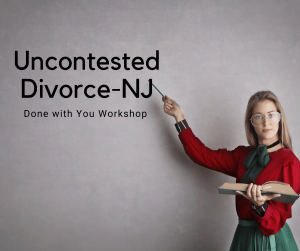
Although most states have some form of “no-fault” as grounds, there are still instances where a legal separation is the best route to go when heading towards divorce. “No-fault” means that the parties do not need a “reason” to divorce, they can just allege irreconcilable differences (or some variation of) and that suffices. This negates the need to rely on a separation in a legal way as the reason to divorce. However, there are still some instances where a separation is advantageous no matter what grounds exist.
Divorce Therapy and its Implications
Legal Separation vs. Separation
There is a difference between a legal (formal) separation and just the parties merely living separate and apart. A legal separation is a when you have a written agreement (in some states it must be filed in court) stating the terms of your separation. It usually includes provisions with respect to property division, spousal support and custody too.
A separation done legally does NOT end the marriage, it puts the world on notice that you are no longer identified as a married couple for financial, medical or other reasons.
When parties are just living apart with NO formal, written agreement there is no such notice and so the IRS, the Social Security Administration, and the like, will consider you married.
The Advantages of a Legal Separation
The main reason couples opt for separation in a legal way is take advantage of the financial benefits. They are the following:
- The parties can still file jointly when filing taxes.
- Any assets &/or debts that accumulate from the date of legal separation, will not be considered marital. This means each party will keep their assets and be responsible for their own debt.
- Either party may be qualified for social security benefits by meeting the 10 year requirement. Certain military benefits can remain intact.
- Health insurance benefits can continue for the parties.
- May meet certain religious requirements.
Such separations do not have an inherent end date. They can remain intact until one or both parties die. However, reconciliation or actual divorce terminates the agreement. The terms of the legal separation may be incorporated into the final divorce or the parties can agree to modify the terms upon divorce.
When it is NOT Advantageous
Sometimes the legal separation creates more problems than proceeding straight to divorce. Also, unlike a divorce, this kind of separation may not get the same acknowledgment in a state different from the state it was created.
- Entering into a sexual relationships with another while there is a legal separation may arise to the crime of adultery in some states.
- Some states do NOT allow you to “incorporate” or “merge” it into the divorce. A separate action for divorce is necessary.
- Enforcement of legal separations can be an issue for either Family Court or Civil Court. Depending on which issues are sought for enforcement, either court may be more favorable. (Florida, is one of those states since it does not acknowledge it.
- The costs for filing it can be duplicative if a divorce follows.
- Mental and emotional anguish can be inevitable. Some parties feel like they are in limbo until an actual divorce happens.
The bottom line, have all of the information and facts before proceeding to legal separation. Although it is viewed as a step short of divorce, the parties should prepare as if they are actually going right to divorce.
In Conclusion
Explore all options when trying to decide which route to take when splitting up. Gather info, research laws, speak with professionals, etc.
If you would like to discuss your divorce or custody case, please feel free to reach me.
Need help in handling your Family Court case on your own?
We have services that are specifically geared toward helping self-represented litigants like you understand the common mistakes that lead to the most disappointing outcomes. To find out more about our services, visit us at WWW.THEDIVORCESOLUTIONIST.COM and join our Facebook community HERE to get some helpful advice and some FREEBIES. Listen to our latest Podcast episode here.






 come across as unemotional, they barely recall important facts, they fail to communicate effectively and they totally ignore your wishes at times.
come across as unemotional, they barely recall important facts, they fail to communicate effectively and they totally ignore your wishes at times.